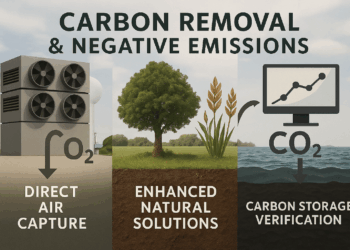In 2024, human-induced climate change has led to an alarming increase in global temperatures, resulting in an average of 41 additional days of dangerous heat experienced by populations worldwide. This unprecedented rise has had profound implications, including a surge in extreme weather events such as destructive storms, wildfires, and floods, underscoring the escalating impact of climate change on human societies and natural ecosystems.
This year has been marked by significant climate milestones. For the first time, global temperatures have exceeded the 1.5°C threshold above pre-industrial levels, a critical limit outlined in the Paris Agreement. This breach signifies a move into uncharted climatic territory, with the World Meteorological Organization (WMO) issuing a “Red Alert” due to the rapid pace of climate change, exacerbated by greenhouse gas emissions and an El Niño period.
The increase in global temperatures has been accompanied by a rise in extreme weather events. Spain, for instance, has faced severe natural disasters, including historic flash floods in Valencia that resulted in significant loss of life and property. These events have led to political turmoil, with public outcry over perceived governmental inaction.
Similarly, other regions have experienced unprecedented heatwaves, wildfires, and hurricanes, all intensified by the warming climate.
The scientific community has been unequivocal in attributing these changes to human activities. Researchers from World Weather Attribution (WWA) and Climate Central have found clear links between climate change and the majority of extreme weather events observed this year. Their studies indicate that human-caused climate change has played a significant role in events such as heatwaves, droughts, tropical cyclones, and intense rainfall.
The additional days of dangerous heat pose serious threats to human health, particularly in vulnerable populations. Extreme heat can lead to heat-related illnesses and exacerbate existing health conditions. Moreover, the natural environment is under stress, with ecosystems like the Arctic tundra shifting from carbon sinks to carbon emitters due to thawing permafrost, further accelerating climate change.
In light of these developments, scientists and policymakers are calling for immediate and decisive action to reduce greenhouse gas emissions. Without significant mitigation efforts, the frequency and intensity of extreme weather events are expected to increase, leading to further loss of life, economic damage, and irreversible changes to the planet’s ecosystems. As the world confronts these challenges, the imperative to transition to sustainable practices and reduce emissions has never been more critical.








